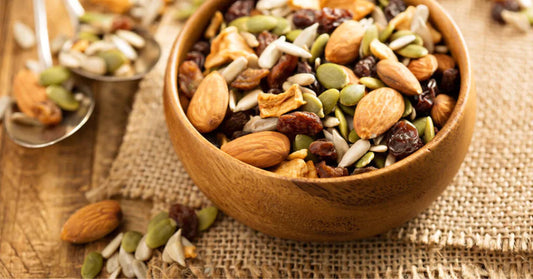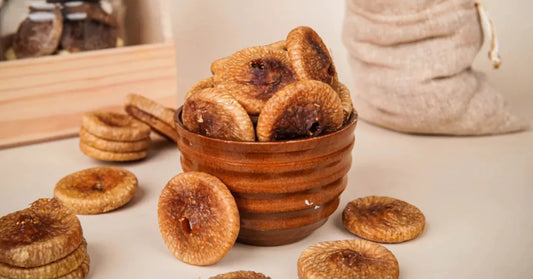Pregnancy brings many questions about diet and nutrition. One common query is about the safety and benefits of consuming cashews during this crucial period. Let's explore the topic of cashews and pregnancy in detail.
Are cashews safe to eat in all trimesters of pregnancy?
Short answer: Cashews are generally safe to eat throughout pregnancy, provided you're not allergic to them and consume them in moderation.
- Cashews are nutrient-dense, offering essential vitamins and minerals for fetal development.
- They contain folate, which is crucial for preventing neural tube defects.
- The healthy fats in cashews support brain and eye development in the fetus.
- Eating cashews can help manage pregnancy-related constipation due to their fiber content.
- Always consult your healthcare provider for personalized advice on your pregnancy diet.
Can cashews affect blood sugar during pregnancy?
Short answer: Cashews have a low glycemic index (GI) and can help stabilize blood sugar levels when consumed in moderation.
- Cashews contain healthy fats and protein, which slow down digestion and prevent blood sugar spikes.
- The fiber in cashews also contributes to better blood sugar control.
- For women with gestational diabetes, cashews can be part of a balanced diet when portion-controlled.
- Pairing cashews with other low-glycemic foods can further help in managing blood sugar levels.
- Regular monitoring of blood sugar levels is essential, especially if you're at risk of gestational diabetes.
What is the recommended serving size for cashews while pregnant?
Short answer: A recommended serving size is about 1 ounce (28 grams) or a small handful of cashews per day during pregnancy.
- One ounce of cashews provides approximately:
- 157 calories
- 5 grams of protein
- 12 grams of healthy fats
- 1 gram of fiber
- This serving size ensures you get the nutritional benefits without excessive calorie intake.
- Spread your cashew consumption throughout the day to avoid overindulging.
- Consider incorporating cashews into meals or snacks for balanced nutrition.
- Always listen to your body and adjust portion sizes based on your overall diet and healthcare provider's advice.
Should I be cautious about introducing cashews to my diet for the first time during pregnancy?
Short answer: If you've never eaten cashews before, it's wise to introduce them cautiously during pregnancy and watch for any allergic reactions.
- Start with a small amount, such as 2-3 cashews, and wait 24 hours to observe any reactions.
- If no adverse effects occur, gradually increase the amount over several days.
- Common signs of allergic reactions include:
- Itching or swelling of the mouth or throat
- Hives or skin rashes
- Difficulty breathing
- Nausea or vomiting
- If you experience any of these symptoms, discontinue cashew consumption and consult your doctor immediately.
- Consider getting an allergy test before pregnancy if you have a family history of nut allergies.
Are salted or roasted cashews okay for pregnancy, or should I stick to raw cashews?
Short answer: Both raw and roasted cashews are safe during pregnancy, but unsalted varieties are preferable to control sodium intake.
- Raw cashews retain slightly more nutrients but may carry a higher risk of bacterial contamination.
- Dry-roasted cashews are a good alternative, offering a balance of safety and nutrition.
- Avoid cashews roasted in oil, as they may contain unhealthy trans fats.
- If choosing salted cashews, monitor your overall sodium intake to prevent fluid retention and high blood pressure.
- Unsalted cashews are the best choice for most pregnant women, allowing better control over salt consumption.
Can eating too many cashews be bad for my baby during pregnancy?
Short answer: While cashews are nutritious, excessive consumption can lead to weight gain and potentially impact fetal development.
- Overconsumption of cashews may lead to:
- Excess calorie intake, contributing to unhealthy weight gain
- Potential imbalance in nutrient intake
- Digestive discomfort or constipation
- Stick to the recommended serving size of 1 ounce per day.
- Balance cashew consumption with a variety of other nuts and seeds for diverse nutrition.
- Monitor your overall calorie intake, ensuring cashews don't replace other essential foods in your diet.
- If you have concerns about your cashew intake, consult your healthcare provider for personalized advice.
Is craving cashews a normal pregnancy craving?
Short answer: Craving cashews during pregnancy is normal and may indicate a need for certain nutrients, but excessive cravings should be discussed with a healthcare provider.
- Pregnancy cravings are common and can include various foods, including nuts like cashews.
- Craving cashews might indicate:
- A need for more protein or healthy fats in your diet
- A subconscious desire for nutrients like magnesium or zinc
- While it's okay to indulge cravings in moderation, don't let them dominate your diet.
- If cravings are intense or persistent, discuss them with your healthcare provider.
- Consider keeping a food diary to track cravings and overall nutrient intake.
Are there alternative nuts or seeds that offer similar benefits to cashews during pregnancy?
Short answer: Yes, several nuts and seeds offer nutritional benefits similar to cashews and can be consumed during pregnancy.
| Nut/Seed | Key Nutrients | Benefits |
|---|---|---|
| Almonds | Vitamin E, Calcium | Bone health, antioxidants |
| Walnuts | Omega-3 fatty acids | Brain development |
| Chia seeds | Fiber, Omega-3s | Digestive health, brain development |
| Pumpkin seeds | Iron, Zinc | Blood health, immune support |
| Pistachios | Protein, Vitamin B6 | Muscle development, energy |
Is it safe to eat raw cashews during pregnancy?
Short answer: Commercially available "raw" cashews are safe during pregnancy as they're actually steam-cooked, but truly raw cashews should be avoided.
- Commercially sold "raw" cashews are not truly raw; they've undergone steam cooking to remove toxins.
- These cashews are safe to consume during pregnancy when purchased from reputable sources.
- Truly raw cashews contain urushiol, a toxin that can cause severe allergic reactions.
- Always ensure your cashews are from a trusted source and properly processed.
- If you're unsure about the processing of your cashews, opt for roasted varieties to be safe.
Conclusion
Cashews can be a healthy and nutritious addition to your pregnancy diet when consumed in moderation. They offer essential nutrients that support both maternal and fetal health. However, it's crucial to stick to recommended serving sizes, be aware of potential allergies, and balance cashew consumption with a varied diet rich in other nutrients. Always consult with your healthcare provider for personalized advice on incorporating cashews or any other foods into your pregnancy diet. Remember, every pregnancy is unique, and what works for one person may not be suitable for another. By staying informed and making mindful choices, you can enjoy the benefits of cashews while ensuring a healthy pregnancy.














